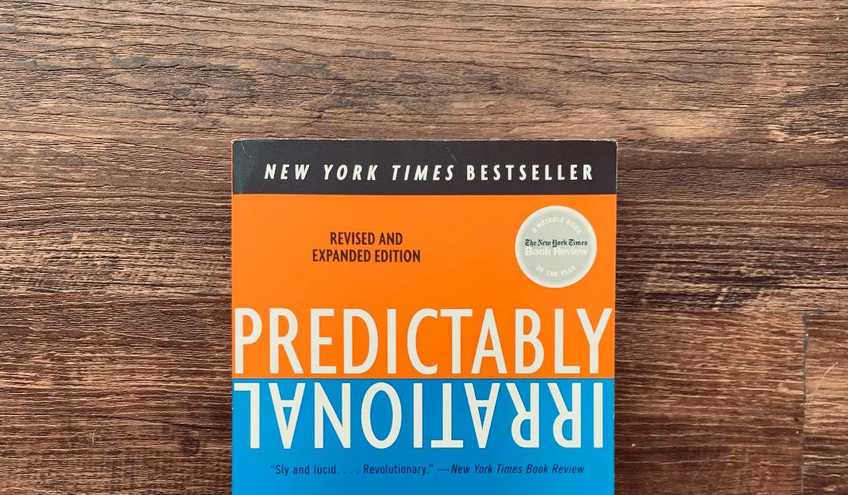Predictably Irrational: A Funhouse Mirror Look at Our Decisions
Dan Ariely’s “Predictably Irrational” isn’t your typical dry behavioral economics tome. It’s an engaging exploration of the messy, fascinating world of human decision-making, where logic often takes a backseat to surprising quirks and biases.
The book opens with a personal anecdote, a reminder that Ariely himself isn’t immune to these quirks. This vulnerability sets the tone for a relatable journey through various experiments that expose our irrational tendencies. From the allure of “free” (even if it’s just a penny) to the inexplicable power of social proof (think: why people line up for a seemingly random store), Ariely dismantles our assumptions about being rational actors. Ariely, a professor of psychology and behavioral economics, challenges the notion that humans always act rationally to maximize their self-interest. Instead, he provides compelling evidence that our decisions are often influenced by irrational forces, yet these patterns of irrationality are systematic and predictable.
Key Concepts: The book is structured around a series of experiments and studies that reveal the underlying mechanisms of our decision-making processes. Ariely discusses various concepts, such as:
- Relativity: Our choices are influenced by comparisons rather than absolute values. For example, the perceived value of an item can change depending on what it is compared to.
- The Cost of Zero Cost: We tend to overvalue items that are free, often making irrational decisions to obtain something at no cost.
- The Power of Social Norms: Social and market norms influence our behavior differently. We often act more altruistically under social norms than market norms.
- The Influence of Arousal: Our decision-making abilities are compromised when we are in a heightened state of emotion or arousal.
- The Problem of Procrastination and Self-Control: We often fail to act in our long-term best interest due to immediate temptations.
Strengths:
- Engaging Writing Style: Ariely writes in an accessible and engaging manner, making complex psychological concepts understandable to a broad audience.
- Real-Life Applications: The book is filled with real-life examples and practical applications, making it relevant for readers interested in understanding and improving their decision-making.
- Scientific Rigor: Ariely backs his claims with robust scientific evidence, drawing on a wide range of experiments and studies.
Weaknesses:
- Repetitive Themes: Some readers may find the themes repetitive, as many of the chapters revolve around similar concepts of irrationality.
- Simplification: While the book’s accessibility is a strength, some critics argue that it occasionally oversimplifies complex psychological phenomena.
Impact and Relevance: “Predictably Irrational” has had a significant impact on the fields of psychology, economics, and marketing. It has influenced how businesses understand consumer behavior and how policymakers design interventions to nudge people toward better decisions. The book’s insights are particularly relevant in today’s data-driven world, where understanding human behavior is crucial for designing effective algorithms and systems.
Conclusion: “Predictably Irrational” is a thought-provoking and insightful book that challenges conventional wisdom about human behavior. Dan Ariely’s exploration of the hidden forces that shape our decisions is both enlightening and entertaining. If you’re curious about human behavior and why we do the things we do, this book is a delightful read. It’s perfect for anyone who wants to be a more mindful decision-maker, whether navigating the grocery store aisles or the complex world of finances.














Post Comment